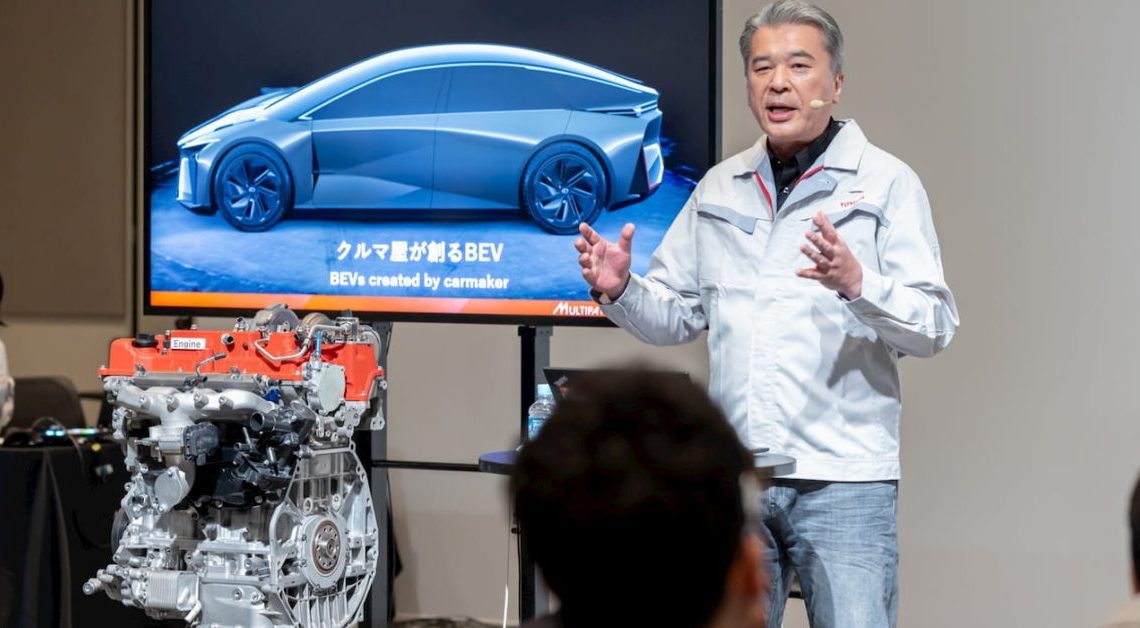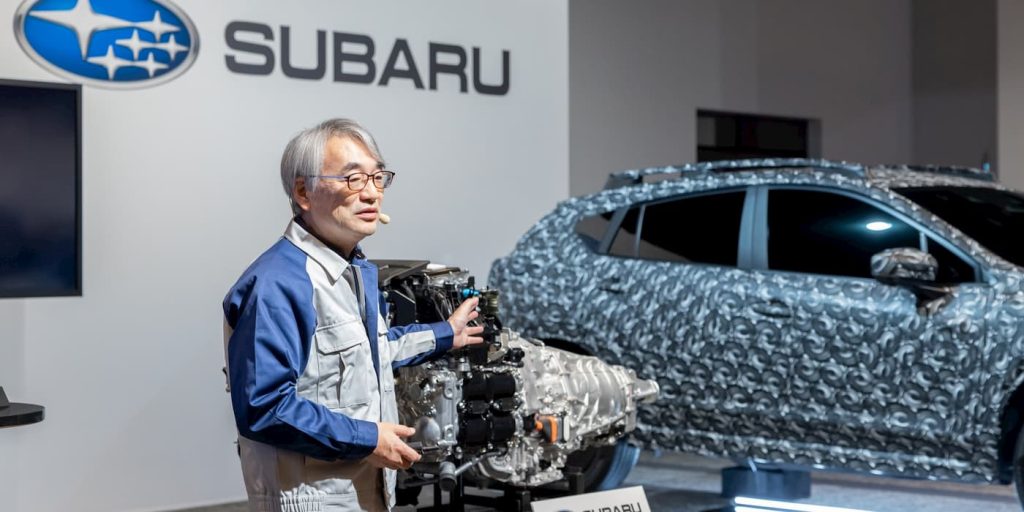
Despite the market moving toward EVs, Toyota, Subaru, and Mazda are committed to developing next-generation ICE engines. The new engines are “tailored to electrification” with integrated EV components.
Toyota, Subaru, Mazda, double down on ICE engines
Japanese automakers have been some of the biggest laggards in the transition to fully electric. As a result, Toyota was once again the worst-ranked automaker on InfluenceMaps annual report on climate lobbying.
The rankings are based on automakers’ EV plans and how much they are lobbying against climate-friendly government commitments.
Tesla, Ford, GM, VW, and Mercedes-Benz topped the list, while Toyota, Mazda, and Suzuki rounded out the bottom.
Despite this, Toyota, Mazda, and Subaru are doubling down on ICE engines. In a press release Tuesday, the companies announced their commitment to developing new engines “tailored to electrification and the pursuit of carbon neutrality.”
Read More: Mazda Announces Fall Release of MX-30 EV in US Market
The automakers aim to integrate EV components, including motors, batteries, and other electric drive units, into the new engines.
Meanwhile, the new units are expected to be smaller and more compact to fit Toyota’s new body styles for its next-gen EVs. Smaller engines enable lower hoods and improved aerodynamics for better performance and fuel efficiency.

The companies said they share a dedication to a “multi-pathway approach” to achieving carbon neutrality.
“In order to provide our customers with diverse options to achieve carbon neutrality, it is necessary to take on the challenge of evolving engines that are in tune with the energy environment of the future,” Toyota’s CEO Koji Sato said.

Sato explained that the three companies would “refine engine technologies through friendly competition.”
The approach includes e-fuel, biofuels, and liquid hydrogen. Toyota claims its new ICE engines will “contribute to the broader adoption of CN fuels.”
The companies said the new engines would be released in the future but didn’t specify when they are expected to hit the market.
Electrek’s Take
Even though the global auto industry is shifting toward all-electric vehicles, Toyota and other Japanese rivals are looking to keep the engine alive.
Meanwhile, Toyota’s US boss, Ted Ogawa, believes the company is “catching up” on EVs and new tech. Of the over 2.2 million vehicles Toyota sold in the US last year, only 9,329 were fully electric, or less than 0.5%.
Many automakers are already achieving double-digit or 100% EV sales at this point, but Toyota (and its Japanese counterparts) are still investing in ICE engines.
The trend can be seen globally. Toyota (including Lexus) sold 30,109 all-electric vehicles globally through March. That’s only 1.2% of its over 2.4 million vehicles sold YTD.
Toyota has also promised next-gen EV batteries, but these are not due out until 2026 (or 2027) at the earliest.
Investing in ICE engines will likely lead to Toyota, Subaru, and Mazda falling further behind the pack as the market transitions to electric.
What do you think about Toyota still investing in ICE engines? Let us know your thoughts in the comments below.
Author: Peter Johnson
Source: Electrek




If only they would have spent this much energy and budget on building a $20k EV. Now they are just running around for partnerships with Chinese automakers and Tesla who have a huge lead. No one is looking to buy e fuel, bio fuel, hydrogen cars, thats a dead market, good for science not profits